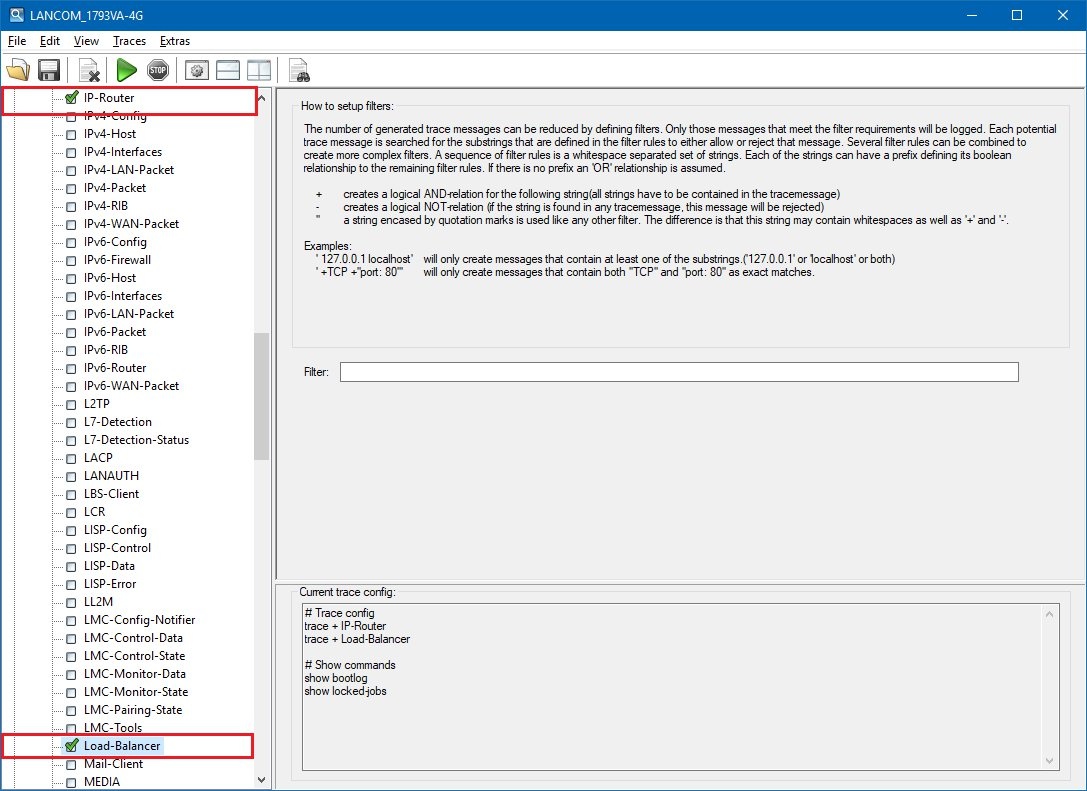Description: This document describes the steps required to set up policy-based routing in combination with load balancing.
Requirements: Scenario: 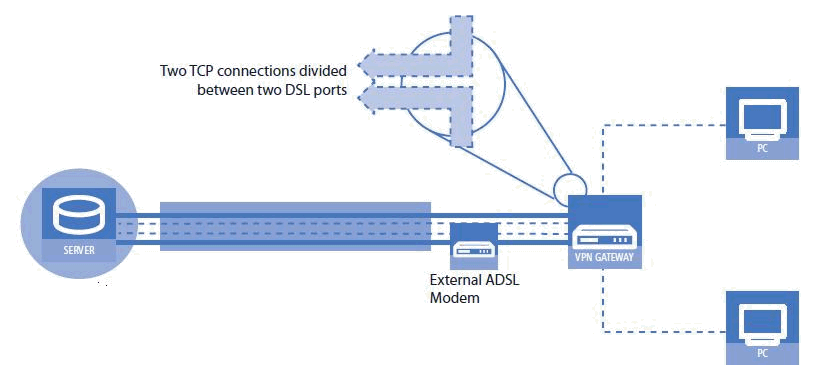
- Two DSL lines are connected to one router by means of a load balancer.
- All sessions are routed via the load balancer.
- A load balancer dynamically divides the sessions between the DSL lines.
Exception:- All VPN connections should operate over the DSL line 1.
- All HTTPS connections should operate over the DSL line 2.
Procedure: 1. First of all, two DSL lines are set up with the Setup Wizard, in this case with the names
INTERNET and
INTERNET2.
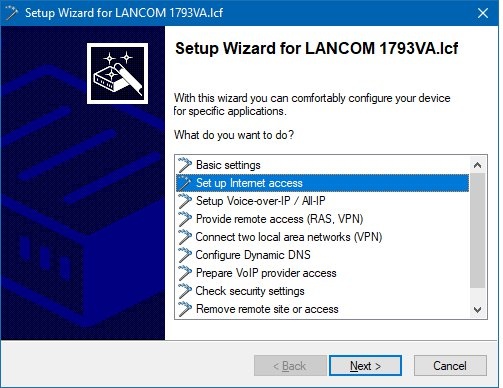
The default route is directed towards the DSL line which was set up last.
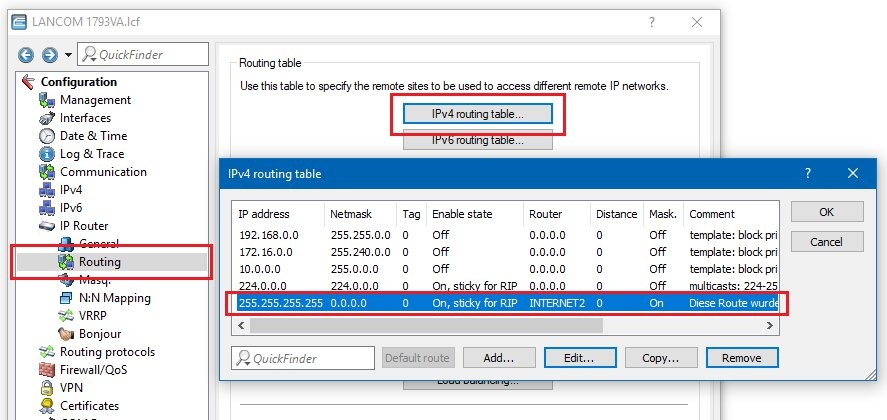
2. Set up the
load balancer under
IP router -> Routing and activate it.
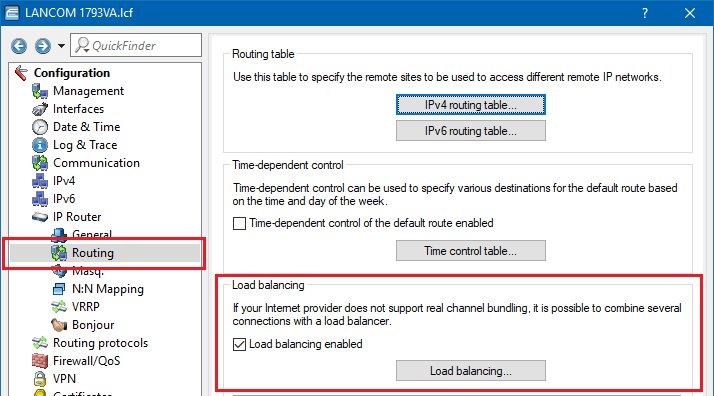
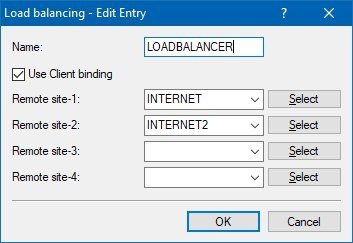
3. Open the routing table and define the load balancer as the default route.
 Add two additional default routes:
Add two additional default routes: 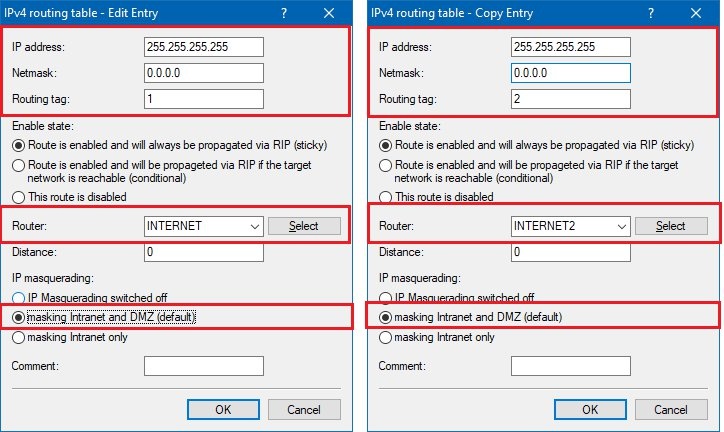
The routing table appears as shown below:

4. The routing tags are used to define which connections are to be used for routing the various sessions.
All sessions which are not to be routed via the load balancer are to be given
routing tag 1 or 2.
For VPN connections, this can be specified in the VPN connection list under
VPN -> IKE/IPSec or VPN -> IKEv2/IPSec.

5. Other protocols can be given the appropriate routing tags in the firewall.
This is done by adding a rule under
Firewall/QoS -> IPv4-Rules -> Rules, in this case for
HTTPS:
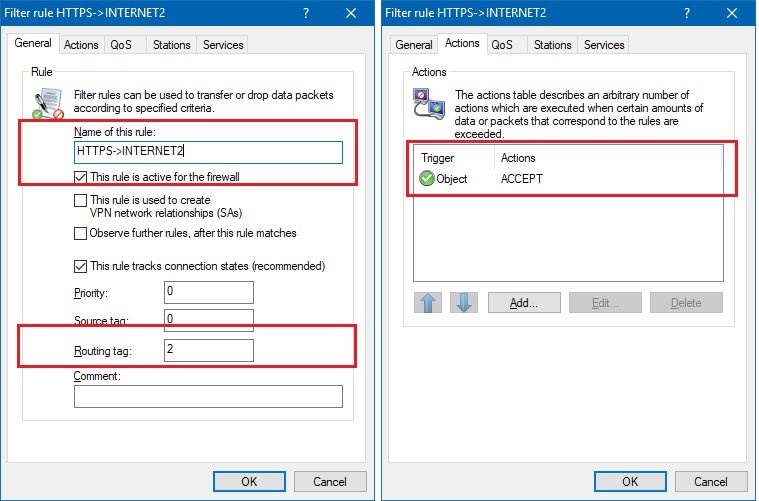
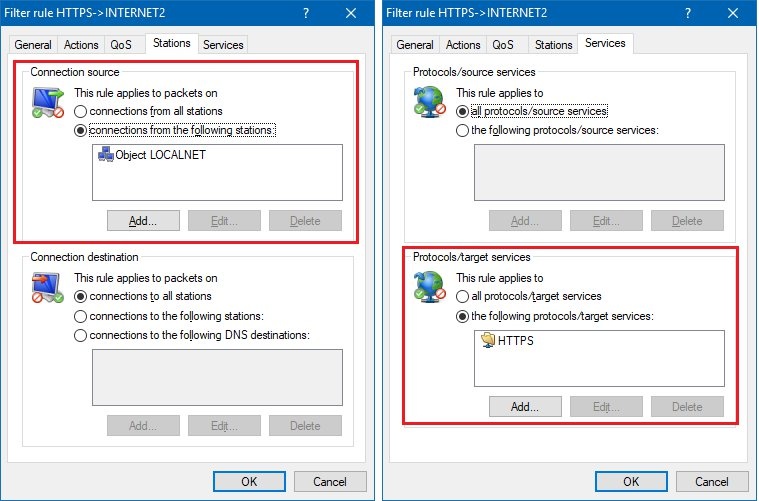
 Checks:
Checks: By means of a load balancer and an IP router trace, checks can be made to ensure that the route assignment/allocation is correct.
